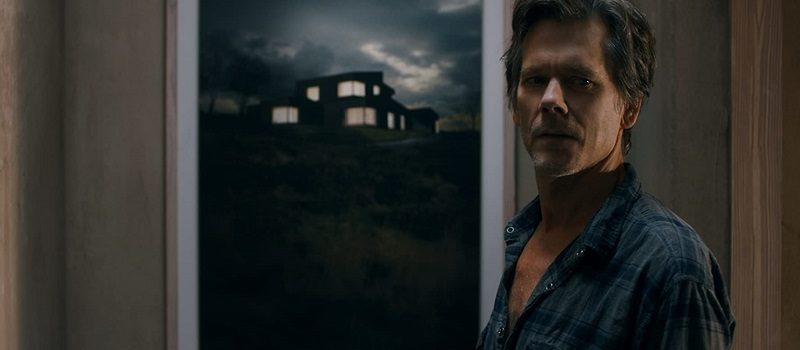Kevin Bacon’s first taste of horror, as an actor, was in Friday the 13th. That worked well for the star. He returned to the genre with writer-director David Koepp in 1999’s Stir of Echoes. The pair have reteamed for another thrill ride, You Should Have Left.
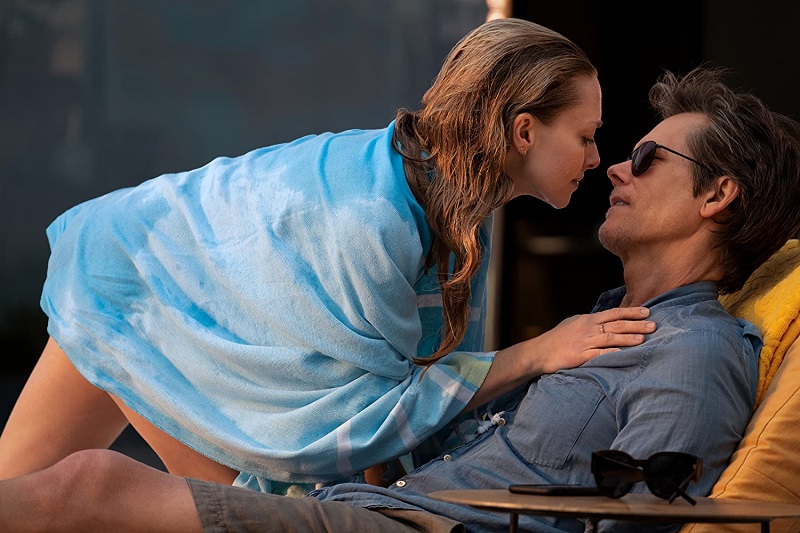
The Blumhouse (Halloween, The Purge and The Conjuring universe) and Universal produced You Should Have Left first got teased merely a few weeks ago with a trailer that landed out of nowhere. Horror fans always love a good surprise, and there can be no better shocker than a Blumhouse horror flick that nobody saw coming, especially one starring Kevin Bacon.
Bacon is Theo Conroy, an uber-wealthy financier who is married to the much younger Susanna (Amanda Seyfried)—an actress who we learn seems to appear in movies that involve a little titillation. For Theo, it is what it is, but if truth is being told, he’s not a big fan of that aspect of her job. They’re raising their six-year-old daughter Ella (Avery Tiiu Essex) and decide that the clan needs some quality time. What better way to achieve that than to jet to the British Isles a little early before Susanna has to start her next picture in London? They find a home in rural Wales on the internet and that much-needed togetherness commences.
Something Koepp establishes early, albeit subtly, is that Theo is not the most popular fellow. Getting away will also be nice because that “something” that has people leering at him, shouldn’t be an issue thousands of miles from home. All in all, this is a much-needed jaunt for all.
There are countless movies where those describing the action refer to the house as essentially being a character. It is not necessarily the case all the time and it is not something that this writer likes to say when dissecting a film. You Should Have Left is firmly that way. This home is as much a part of the narrative as Susanna, Ella, and Theo. What is so fascinating about this house is it is visibly different inside versus outside. There also is a mesmerizingly maze-like feel to the architectural layout and its gorgeous modern-aesthetic.
Right away, that produces a haunting sense. That occurs due to a stellar job by the film’s production designer, cinematographer Angus Hudson as well as how Koepp directed certain scenes. The inner geography of the home simultaneously contributes to a raised sense of anxiety and produces visual awe. As the familial trio settle in, the home seems to be playing “tricks” on Bacon.
Director Koepp uses the entity of the dream sequence by keeping audiences guessing as to whether what Theo is seeing and experiencing is a nightmare or reality. He also smartly knows when to stop that dramatic tool before it becomes a joke—as too many filmmakers seem to do, hindering their narrative. It’s like the cinematic version of the boy who called wolf. When horrific dreams and reality meld, it raises the stakes and has us wondering where on earth this story will venture.
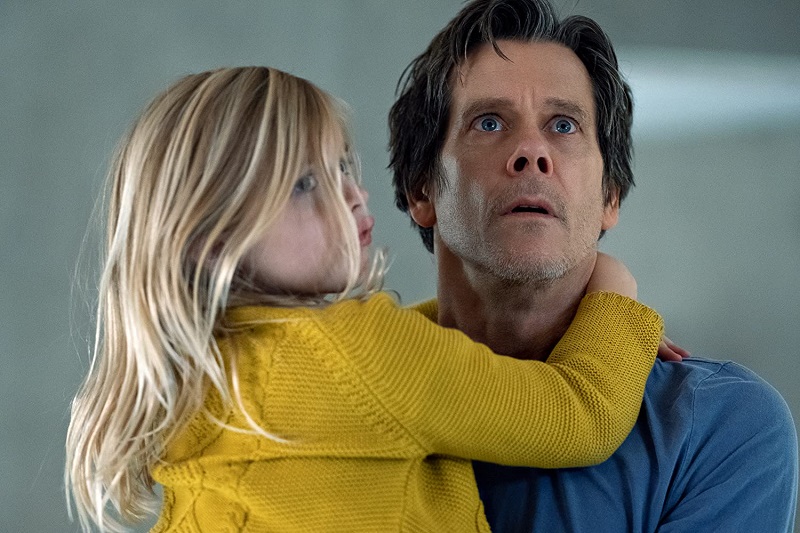
Bacon is terrific. That boy next door quality that he’s had on countless occasions (from Footloose on) is still innately there, yet in You Should Have Left, there is a sense of nefariousness just below the surface. Now, screenwriters have notoriously played with that concept as a way of leading their viewers down avenues that are dead ends. It keeps you guessing, as it should, and naturally produces a “did he or didn’t he” question from all who embark on Koepp’s latest. There is also an innate anxiety due to the empty vastness of the Welsh home. Someone clearly owns it and lives there, as the Conroys are renting it—a la Air B&B. But all the pictures have been taken off the walls, leaving only what was holding up those pieces of art or photography.
When Theo heads into town to get some groceries, the shopkeeper talks a bit about the home and that adds layers upon layers to the potential emotive response of the audience. When the store owner (Colin Blumenau) asks Theo, “Seen anything yet?” it almost feels a bit too much. Like, we get it, the house is creepy. But the shopkeeper also establishes something incredibly important to the overall arc of the story. It will permeate every single inquiry one has as the story wields its mettle.
The veteran actor is having a ball playing in the horror sandbox once again. He has such a command of his thespian gifts—it is pure joy for us as well to watch him either 1) descend into madness or 2) answer to his sins. Either way, we know one thing, Koepp has grabbed us by the lapels. We are in for the long haul.
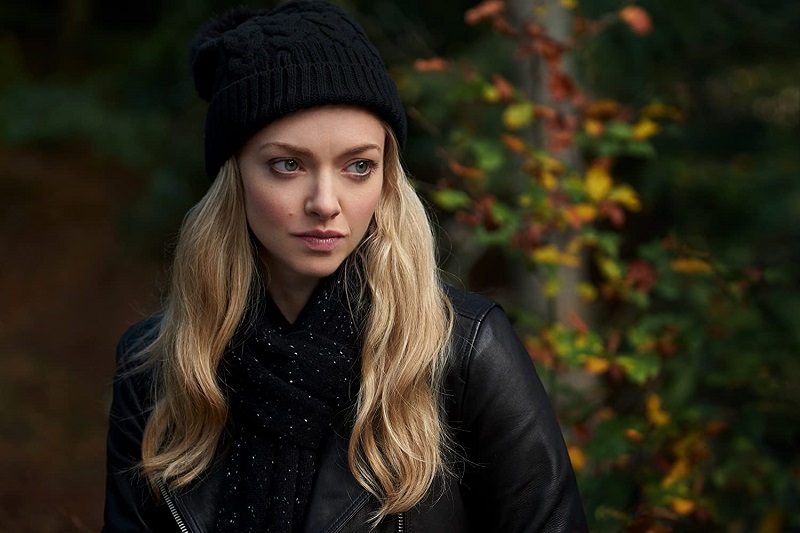
Seyfried does the doe-eyed wife thing, at first. It is obvious how much she adores her husband and the father of her little girl. How filmmakers handle the age difference is part of the overall structure. As seen in that surprise trailer, their daughter tells him that he is going to die first because he’s “old.” It’s a throwaway line, but it accomplishes two things. It injects some lighthearted beats in an otherwise stressful movie-going experience and leans into those who roll their eyes at Hollywood once again giving the male lead a too youthful wife. As this onion is peeled, Susanna is progressively less sympathetic to her husband’s frustrations with parts of his life. Although “old,” he still is portrayed as one wonderful father. There’s a moment when Susanna and Theo’s issues come to a head and it, sadly, feels a little contrived at that point—although integral to how this thrill ride/mystery plays out. Which is a unique quandary.
Although a little too brief in terms of its power versus the horror shock value, there is a slew of morality dilemma issues raised throughout Koepp’s film. It recalls some of the great societal issues meet horrorshow flicks of the past, such as Night of the Living Dead. Both comedy and horror can famously get away with tackling larger issues to the society at large by masking its commentary in frights or laughs.
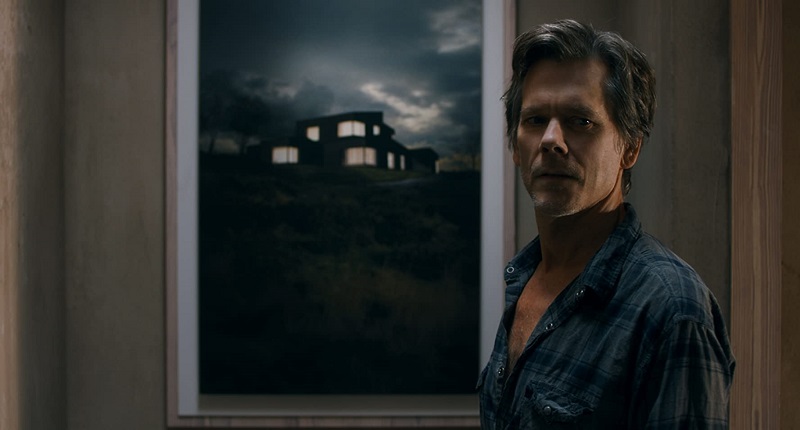
In You Should Have Left, a unique discussion can follow the film. I almost wish I could be a fly on the wall for those post-flick chats. Everyone’s viewpoint will be slightly different in terms of the overall message and takeaway of the latest Blumhouse production. Those are the best cinema moments, where audiences exit the theater (or turn off the TV in this situation!). Morality and who defines it meets justice and who extols it is a ripe landscape for a film and with Bacon, Seyfried, Essex, and Koepp weaving our web, when it comes to You Should Have Left, you’ll be glad you stayed.
Grade: B

